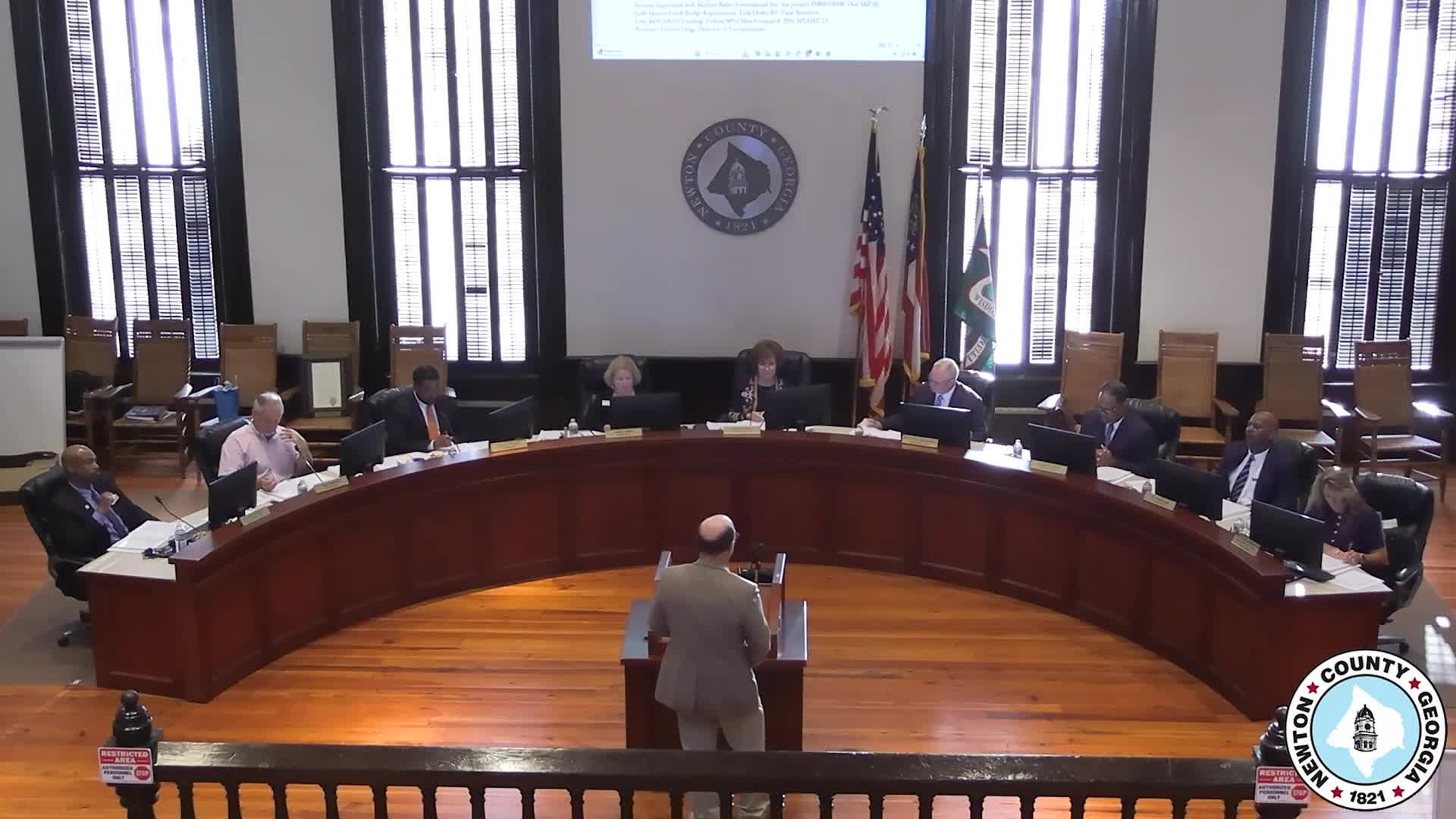Article not found
This article is no longer available. But don't worry—we've gathered other articles that discuss the same topic.
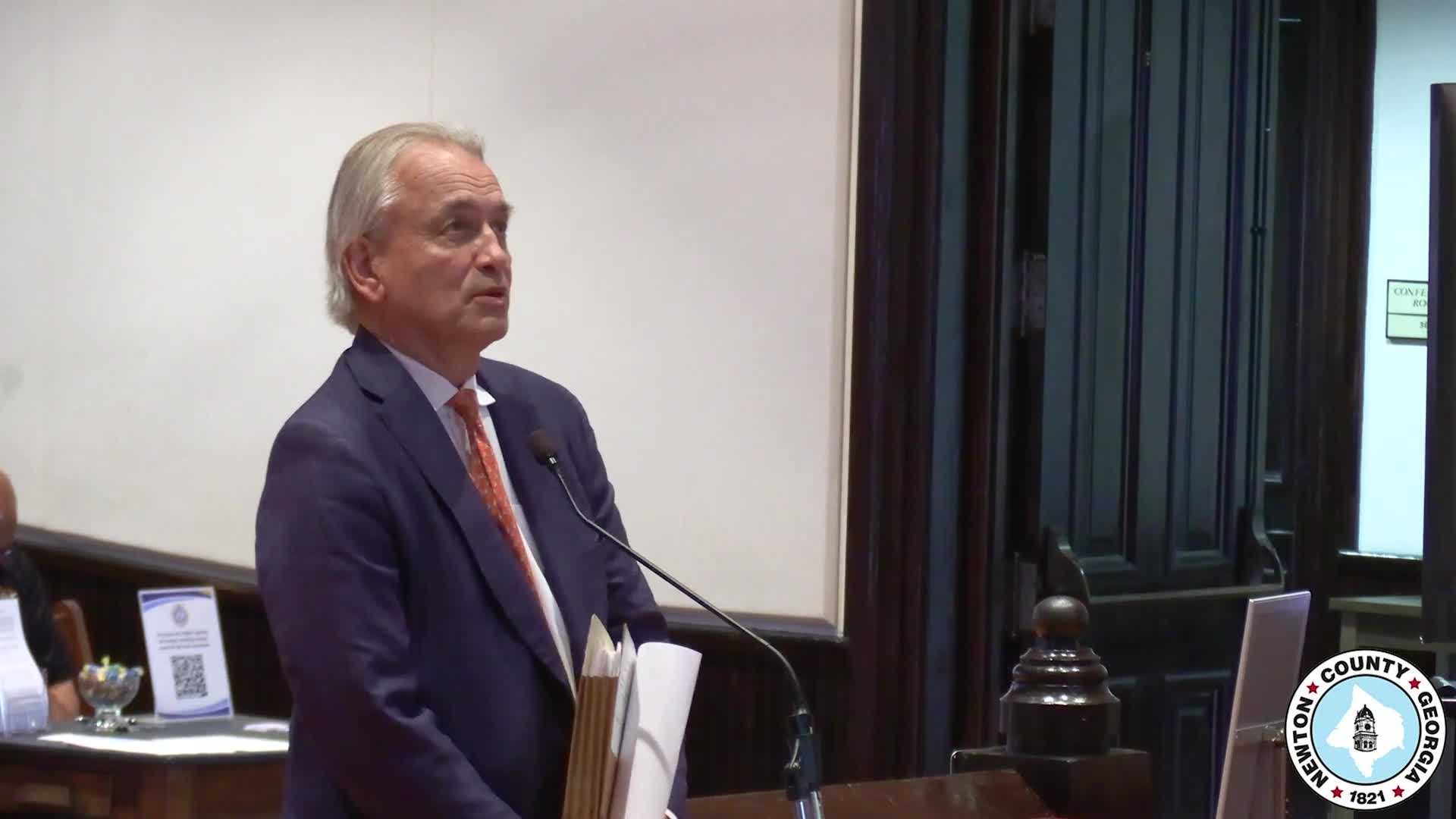
Commissioners appoint board to Newton County Public Facilities Authority and authorize Authority to consider issuing bonds for city projects
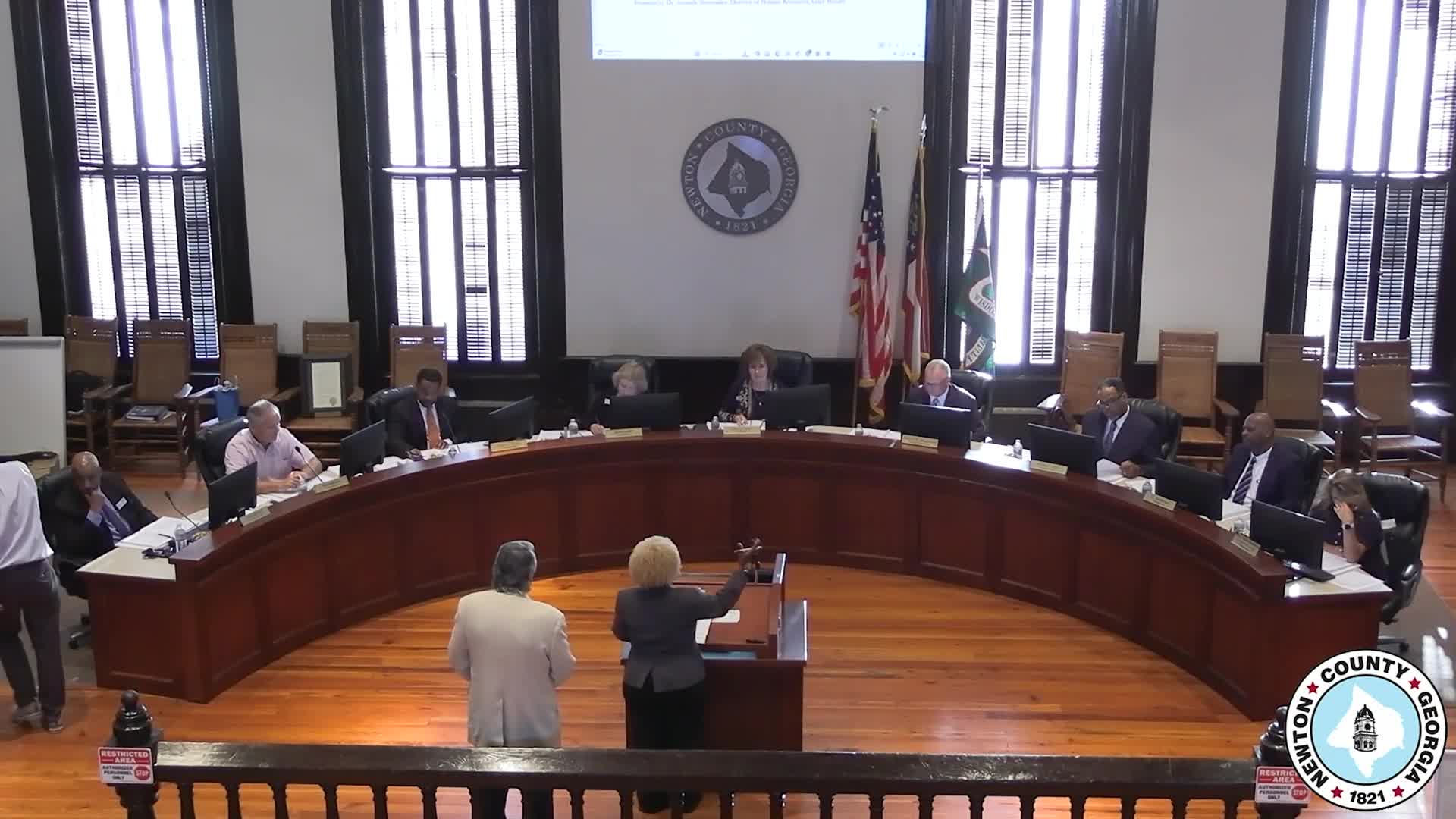
Newton County approves Cigna for employee medical and dental coverage for FY2026
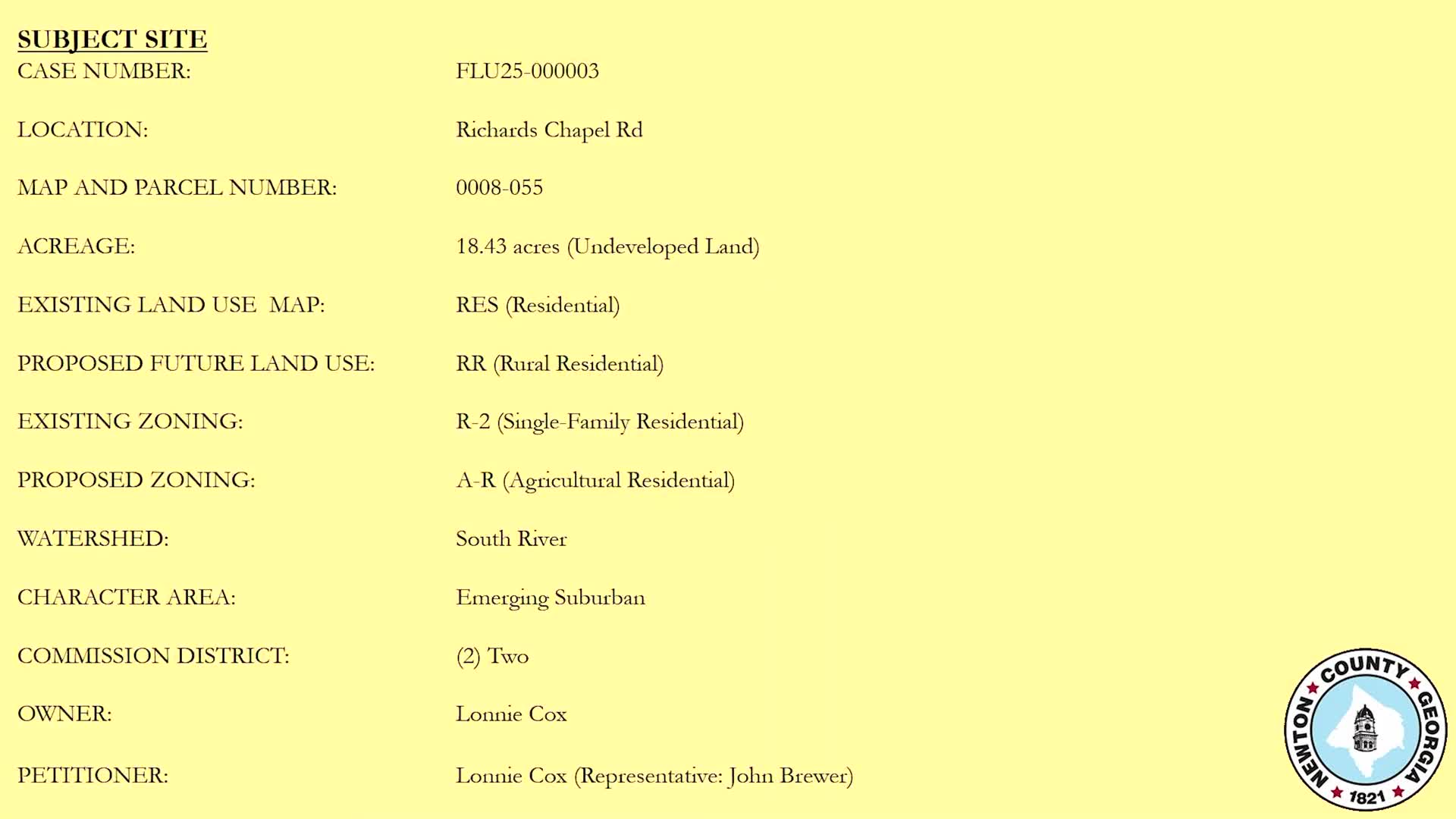
Commissioners table future‑land‑use change for Richard’s Chapel Road parcel after staff briefing
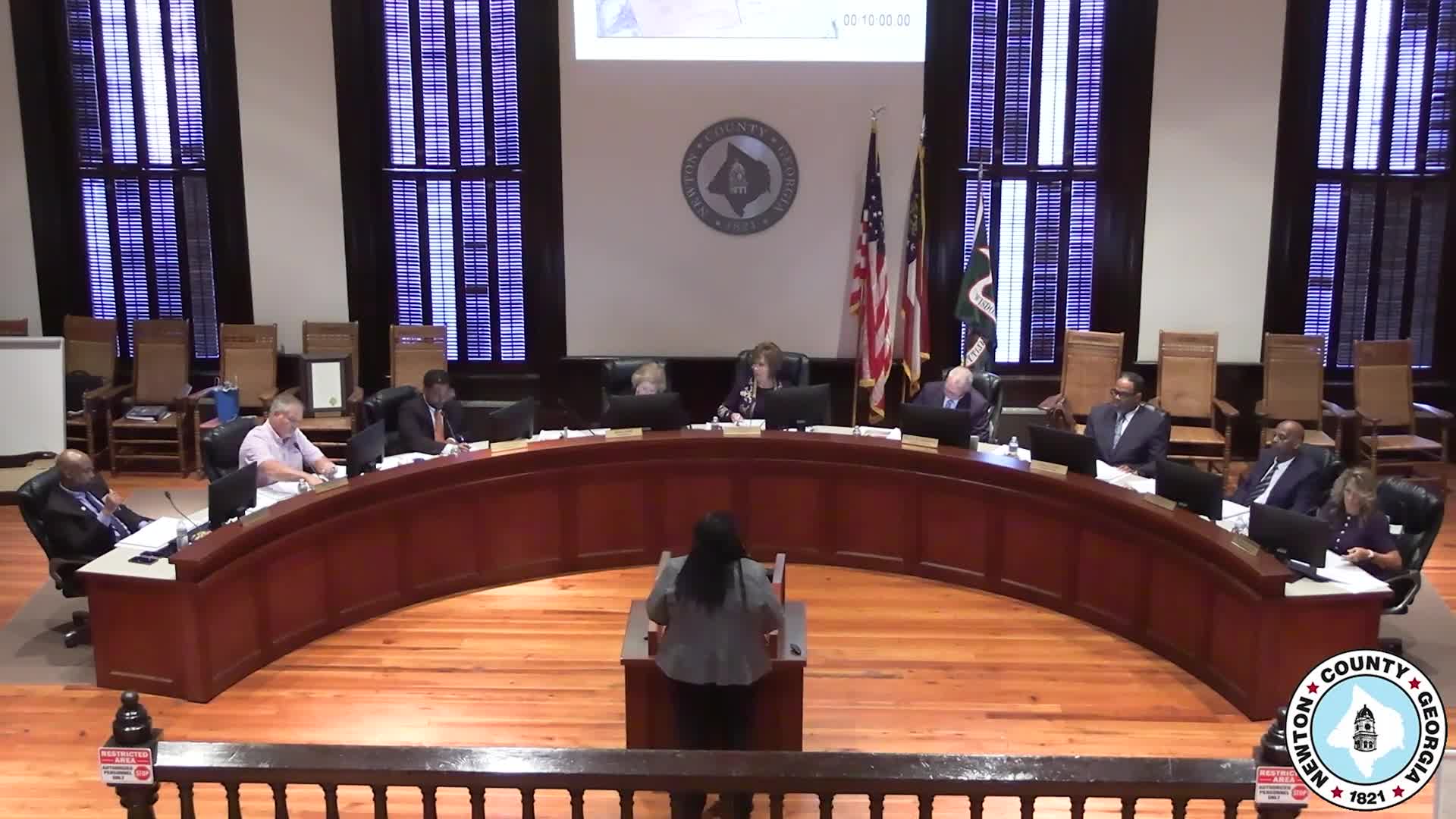
Commissioners table special‑events venue permit at 910 Duncan Road for further review
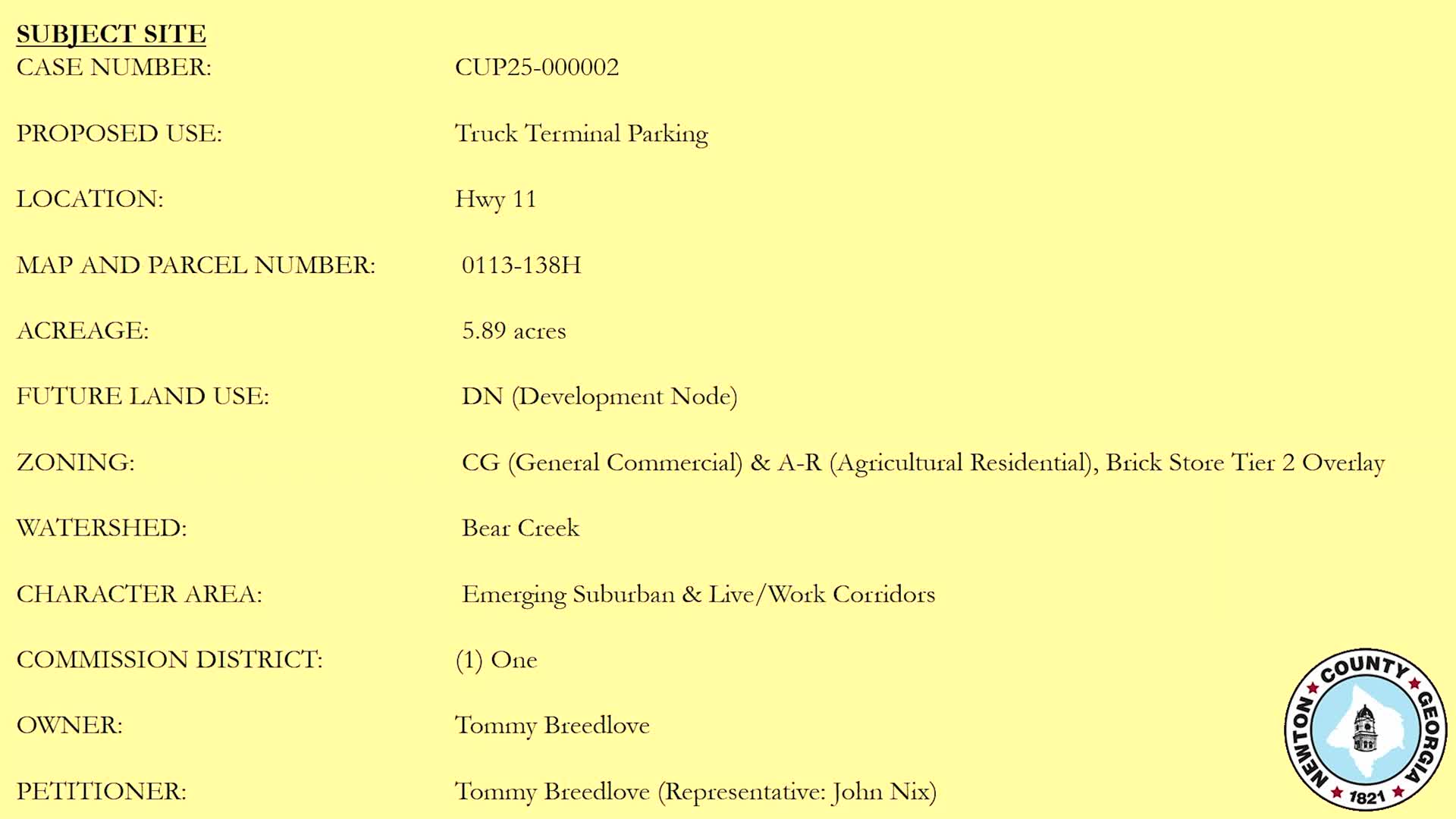
Board denies request to expand truck parking at Highway 11 after planning commission opposition
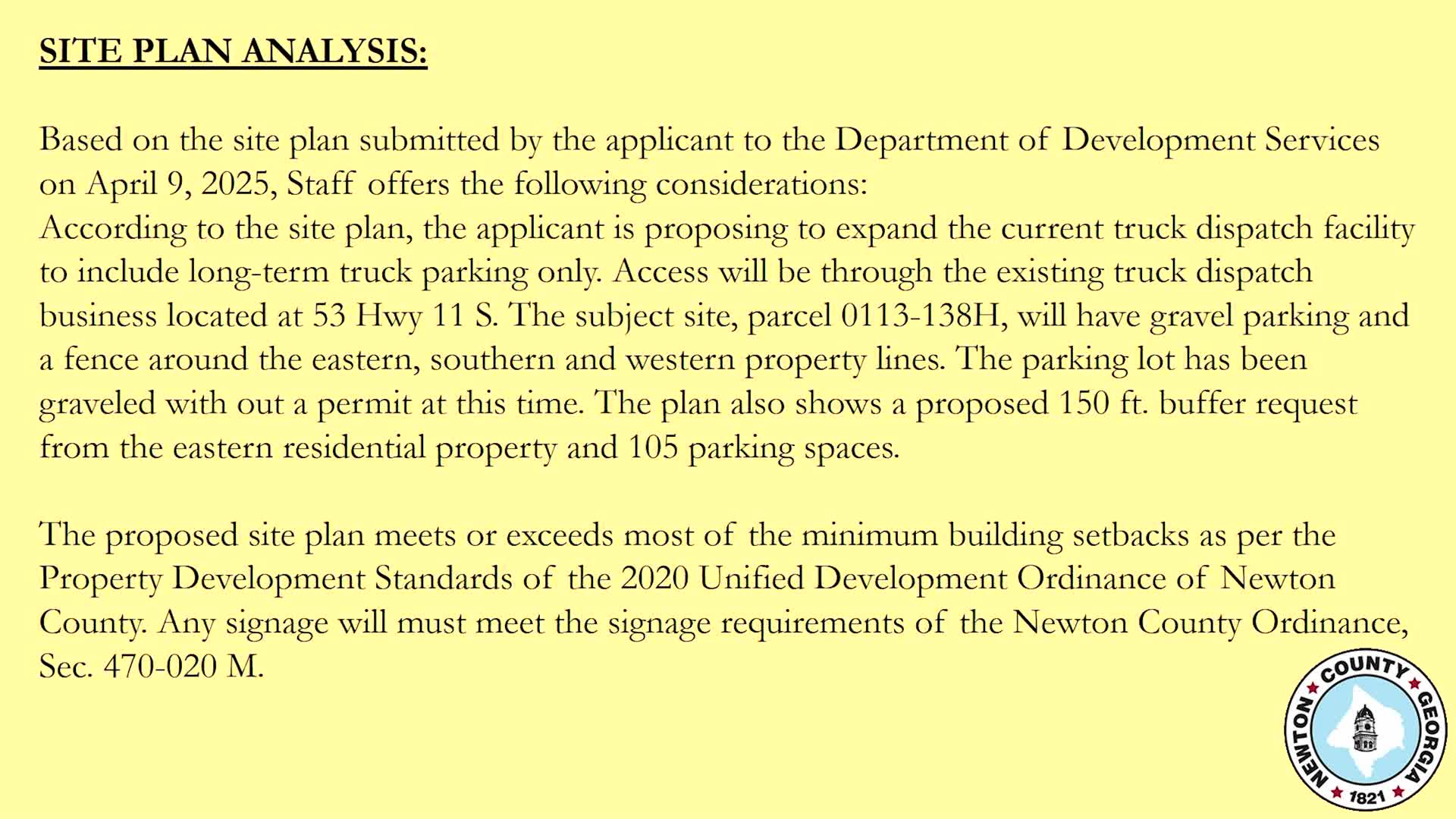
Newton County commission objects to Covington annexation tied to proposed Gregory Road data center
